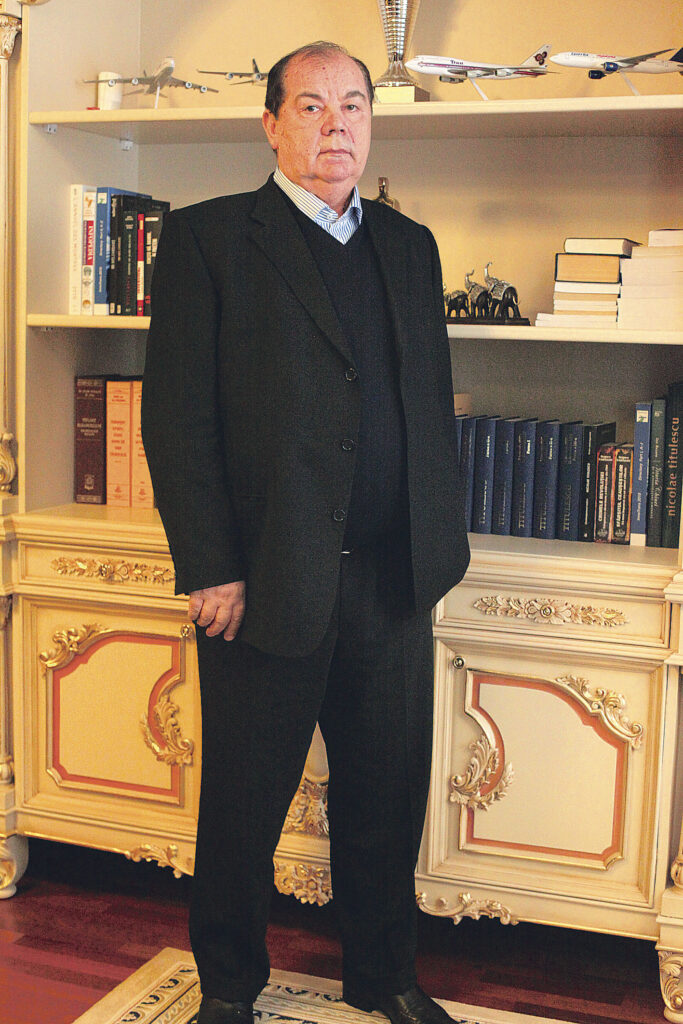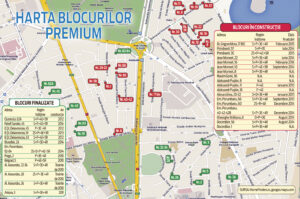He works hard for launching a new rail product, but he doesn’t want to talk about it. He just mentions the investment: two million euros. Meanwhile, he is carefully watching all the movements in the local and foreign rail industry. Valer Blidar, the owner of Astra Vagoane Calatori, the passenger rail cars factory in Arad, wants “the domestic entrepreneurs to be really valued in Romania as they are valued all over the world”.
“All countries protect their industry, apart from Romania. The products we import are of lower quality and more expensive compared to those locally manufactured”, complained the businessman. Furthermore, most of Astra’s production is exported. In fact, without exports, last year’s growth wouldn’t have been possible, as there were no money assigned to investments by the local customers.
What happens today with the rolling stock industry? “Too many socialist measures could imbalance the government budget and the fiscal burden might rise”, said Blidar. More than that, the effects of the economic crisis are still visible, the most optimistic description for his clients’ budgets being “stagnation”. As for reaching again the amounts of money available in 2007-2008 – “it’s virtually impossible”. Despite the obstacles, Valer Blidar and his products keep on attending international fairs. This fall they went to the InnoTrans international rolling stock fair with a luxury car the German media called “the Star Trek car” and that raised visitors’ interest.
“Unblock the investments!”
Valer Blidar expects more orders to come from the domestic rail cars market, despite he believes this won’t happen “as long as in Romania we will only negotiate with foreigners”. He underlined that Romania has the eighth longest rail network in the European Union but it doesn’t know how to fructify it. The average speed of the passenger trains has increased by only one kilometre per hour in the past years, up to 45 kph. It’s well known the Romanian railroads need massive investments for many years to come in order to reach the European average and to interconnect with the European rail corridors. An estimate made by the people in the rolling stock industry came up with the amount of half a billion euros per year for repairs, upgrades and constructions.
Things are different for Blidar’s tramway manufacturing department. As result of winning some tenders, the company will build six tramways for the Arad City Hall and will upgrade 30 tramways (in partnership with another company) for the Timisoara City Hall. This contributed to Astra Vagoane Calatori’s turnover, which grew almost four times last year, to over 40 million euros. This year’s growth rate is estimated at over 10%. As for the profit, it might reach 15 million euros in 2014, 2.5 million euros more than in the previous year.
The positive financial results can’t make Valer Blidar forget one of the most important problems his company is facing: the personnel. He said he is very disappointed by the Romanian education system, which is not preparing the youngsters as in other European countries. “They have a diploma, but they don’t know anything. Some with college education don’t know the multiplication table. No one wants to work anymore, and the parents are to blame. They don’t know how to raise their children and how to send them to schools where they can actually achieve the skills for a job”, said the businessman who is now attempting to invest in schooling young people.
Valer Blidar’s business
HISTORY More than 13 years ago, he decided to invest in a sector which seemed to have potential – rail cars manufacturing.
EMPLOYEES He owns several companies with over 2,000 employees.
COMPANIES Apart from Astra Vagoane Calatori, the businessman owns shares in Astra Vest, SIRV Titu or Marmura Service.
FINANCES In 2009, he founded the Commercial Rail Bank.
TRAMWAY Imperio was launched in 2012, becoming the first tramway built by a Romanian company in partnership with a giant, Siemens.





